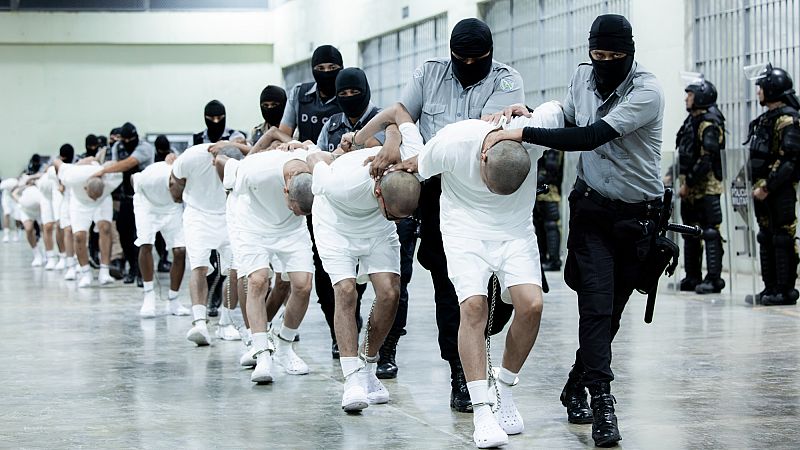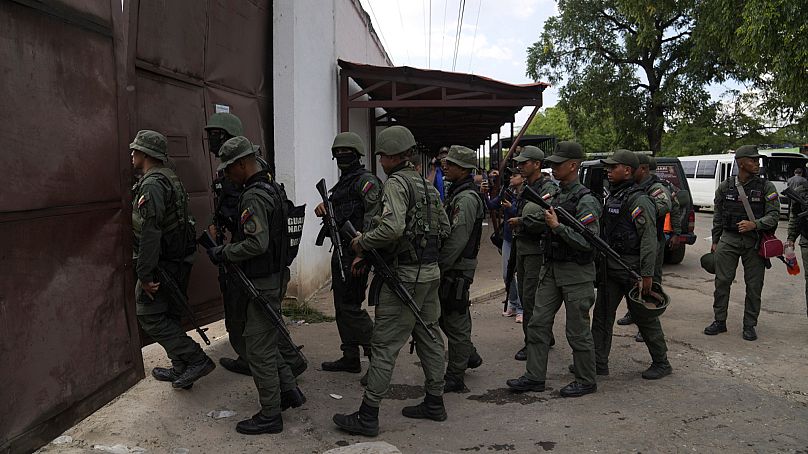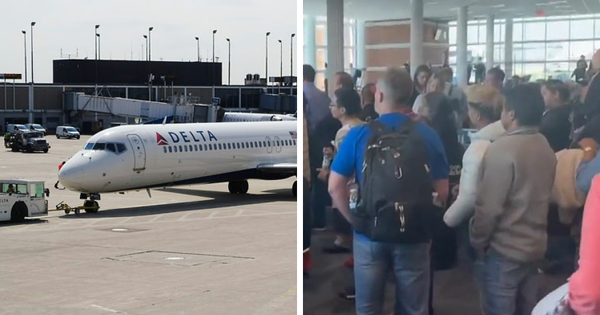
The US Supreme Court has ruled that the Trump administration can resume its deportations of Venezuelans under an 18th-century law, provided they are given a court hearing.
In a decision released on Monday evening, the justices overturned a lower court order temporarily blocking the US government from carrying out the controversial policy.
The 5-4 ruling, which did not consider legal questions around US President Donald Trump’s use of the Alien Enemies Act, found that Venezuelan migrants accused of being gang members must be given “reasonable time” to challenge their expulsion.
The majority of justices also argued that lawyers representing five Venezuelans were wrong to file a lawsuit last month in Washington rather than in Texas, where the migrants were being held.
The Supreme Court’s decision comes just weeks after 238 Venezuelans were deported from the US to a mega-prison in El Salvador, despite an order from US District Judge James E Boasberg for the planes to turn around.
Divisive decision
Brett Kavanaugh, a conservative justice who voted in favour of the latest Supreme Court decision, noted that he and his eight colleagues all agreed that the migrants should “receive judicial review of their transfers”.
“The only question is where that judicial review should occur,” he said.
Two of the three liberal justices who voted against the majority decision wrote about their concerns over the move.
Sonia Sotomayor, who was joined by the liberal Justices Ketanji Brown Jackson and Elena Kagan as well as by Justice Amy Coney Barrett in part, called the court’s legal conclusion “suspect”.
Writing in dissent, Sotomayor questioned Trump’s use of the Alien Enemies Act of 1798, which had previously only been invoked on three occasions by US presidents — in the War of 1812, World War I and World War II.
On 14 March, Trump said the law was needed to protect the US against an “invasion” by the Tren De Aragua, a gang with roots in Venezuela.
“There is, of course, no ongoing war between the United States and Venezuela. Nor is Tren de Aragua itself a ‘foreign nation’,” Sotomayor wrote.

Referring to last month’s deportations, the liberal justice said the Trump administration’s apparent plan was “to rush plaintiffs out of the country before a court could decide whether the president’s invocation of the Alien Enemies Act was lawful or whether these individuals were, in fact, members of Tren de Aragua”.
“The government’s conduct in this litigation poses an extraordinary threat to the rule of law. That a majority of this court now rewards the government for its behaviour…is indefensible,” Sotomayor added.
In her written statement, Justice Jackson said the court was wrong to handle the matter through its emergency docket, rather than through oral argument and full briefing.
“With more and more of our most significant rulings taking place in the shadows of our emergency docket, today’s court leaves less and less of a trace,” she said.
“But make no mistake: We are just as wrong now as we have been in the past, with similarly devastating consequences. It just seems we are now less willing to face it.”
Trump celebrates ruling
The Trump administration welcomed the Supreme Court’s ruling, with the president saying it was a “great day for justice in America" in a post on his social network, Truth Social.
US Secretary of Homeland Security Kristi Noem, who recently visited the Salvadoran prison where the 238 Venezuelan deportees are being held, also celebrated the move, saying it gave Trump "the power to stop the invasion of our country by terrorists using wartime powers".
Meanwhile, the American Civil Liberties Union, which brought a legal case on behalf of five Venezuelan migrants last month, also welcomed aspects of the decision.
ACLU Attorney Lee Gelernt said the ruling’s emphasis on due process for non-US citizens was an “important victory”.
In recent weeks, reports have suggested the innocence of many of those deported as alleged gang members from the US to El Salvador, including a Venezuelan make-up artist.
Kilmar Abrego Garcia, a Salvadoran national who lived in the US for more than a decade, was also recently sent to the Salvadoran mega-prison.
A lawyer working for the Trump administration admitted last week that his deportation was due to an “administrative error”.
The US government has since claimed that it does not have the ability to bring Abrego Garcia back.
In their ongoing fight against the judiciary, Trump and his allies have called for the impeachment of Judge Boasberg, who issued the order to stop Venezuelans from being deported to El Salvador.







